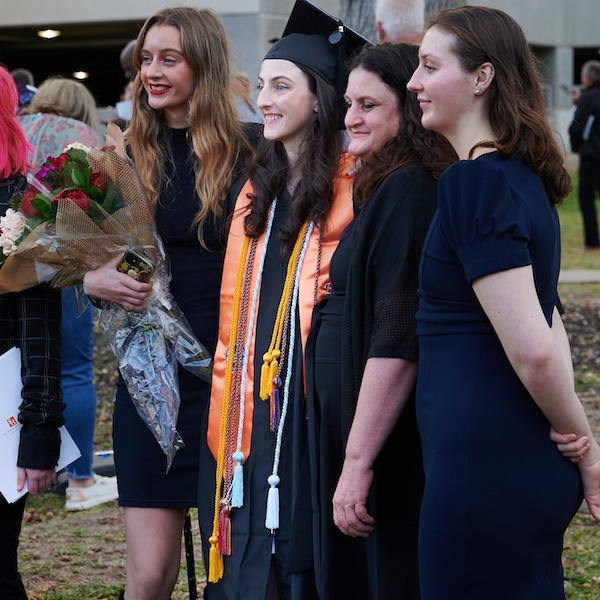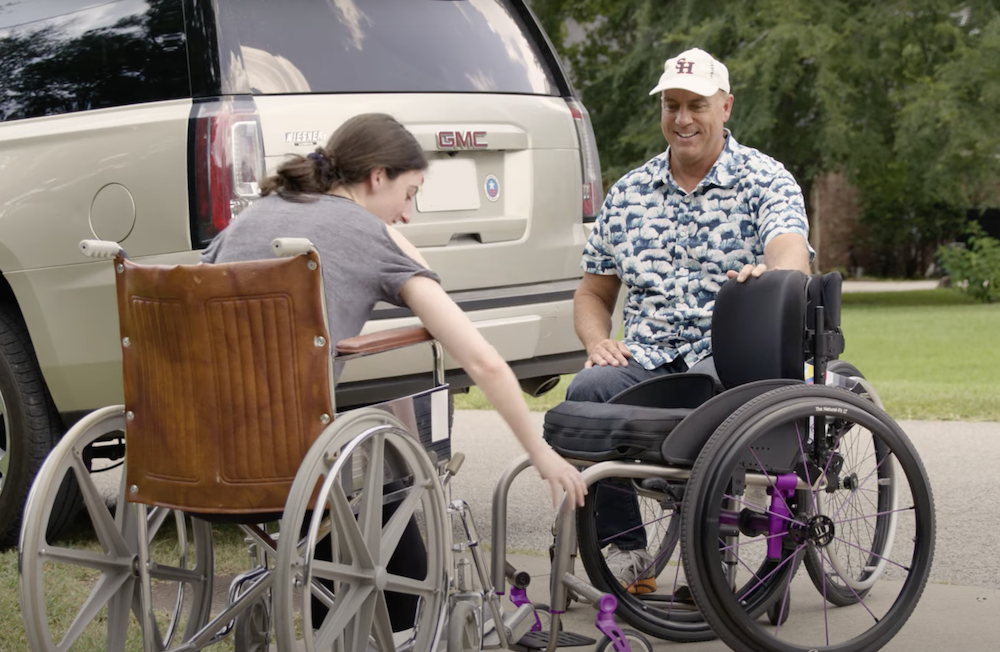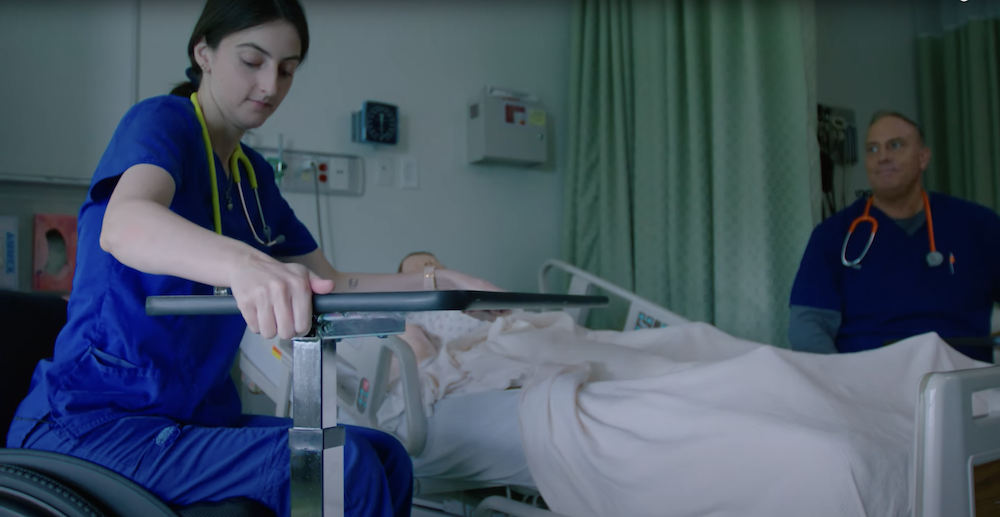Today@Sam Article
Nursing Graduate Embodies Bearkat Spirit
Jan. 15, 2025
SHSU Media Contact: Mikah Boyd
 It is rumored that Sam Houston State University selected the Bearkat as a mascot due a saying at the time, “tough as a bearcat.” SHSU School of Nursing alumna, Rachel Stewart proved herself among the toughest of Bearkats as she earned her nursing degree despite becoming paralyzed in the middle of her academic journey.
It is rumored that Sam Houston State University selected the Bearkat as a mascot due a saying at the time, “tough as a bearcat.” SHSU School of Nursing alumna, Rachel Stewart proved herself among the toughest of Bearkats as she earned her nursing degree despite becoming paralyzed in the middle of her academic journey.
“Sam Houston was known for having an outstanding program that produced great nurses, they were known as a tough program too, so I was pretty excited and nervous at the same time,” Stewart said. “Becoming a registered nurse was my dream and the journey was just beginning. Everything started well, I was making A’s, which is no easy task in nursing school, and I was enjoying the journey.”
Just as she thought things were going smoothly, Stewart found herself struggling to breathe regularly and set up an appointment with her doctor. She received frightening news, there was a large mass in her chest that was impeding her breathing and would need to be cut off from its blood supply and removed.
“When I woke up, I was confused. My legs felt heavy and full of static, and as I awoke more, I realized I couldn’t move them and I was paralyzed,” Stewart said.
The week following her procedure, Stewart quickly became frustrated and discouraged by the extent to which her paralysis impacted her daily life. Grabbing items from her cabinets, getting in and out of her car and even something uplifting like visiting her friends all became difficult as she had to learn how to get around while bound to her wheelchair.
 “Disability money is really hard to get, so I got stuck with what felt like a folding chair with wheels,” Stewart said. “Then my professor, Colonel (ret.) Rob Harmon, showed up with a nice wheelchair, said I was going back to school and we were going to figure it out. His support brought me hope.”
“Disability money is really hard to get, so I got stuck with what felt like a folding chair with wheels,” Stewart said. “Then my professor, Colonel (ret.) Rob Harmon, showed up with a nice wheelchair, said I was going back to school and we were going to figure it out. His support brought me hope.”
Harmon, a clinical assistant professor in the School of Nursing, understood how jarring it is to suddenly lose mobility. Five years after retiring from the U.S. Army, he began to suffer from neurological issues and swelling in his spine that left him partially paralyzed from the waist down. Harmon’s condition was the result of exposure to nuclear biological toxins during his deployment to Uzbekistan and Afghanistan following the 9/11 attacks.
Even though he’d spent 27 years treating patients on the front lines of multiple conflicts, Harmon’s passion for serving others never wavered. He took Stewart under his wing and showed her how she could succeed as a nurse, no matter the challenge.
“You may have lost some of your mobility, but it’s not over when you lose, it’s over when you quit,” Harmon said to Stewart as he began coaching her. “We’re going to show everyone that you can do all the nursing skills from a wheelchair.”
A month following her surgery, and with tons of time practicing nursing skills with Harmon, Stewart began her clinical rotations. Now she was dealing with real patients and their varying perceptions of her ability to provide them with the care they needed. The stigma she faced while participating in clinicals, combined with the mental and physical struggles she was grappling with, made the work all the more difficult.

“Balancing physical therapy with clinicals was rough,” Stewart said. “I pushed myself too hard, and that resulted in unbearable pain. On top of that, I wasn’t sleeping because the pain and spasms would keep me up at night.”
Even so, Stewart continued to push herself so she could fulfill her dream of becoming a nurse. In the moments where she felt she could no longer carry on, Stewart would draw inspiration from Harmon’s mantra; “it’s not over when you lose, it’s over when you quit.”
As she progressed through clinicals, physical therapy and regular coursework, Stewart began using her experience to connect with patients. By doing so, she was able to provide a sense of validation and inspiration as she shared in their pain and shows patients it is possible to push past it all and achieve their goals.
“I gained back a lot of my mobility, but I still use my chair because my legs wear out quick,” Stewart said. “I was able to walk at graduation and now I’m following my dreams. The measure of my life is my service, not my disability.”
- END -
This page maintained by SHSU's Communications Office:
Director of Content Communications: Emily Binetti
Asst. Director Content & Social Media: Emilee White
Communications Manager: Mikah Boyd
Telephone: 936.294.1837
Communications Specialist: Campbell Atkins
Telephone: 936.294.2638
